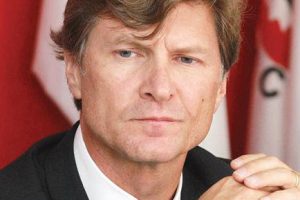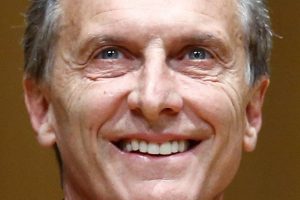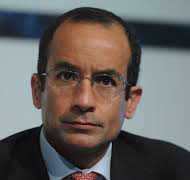
Pope Francis, please don’t call for ‘peace’ in Venezuela. You’ll only help Maduro
Here’s the worst thing that Pope Francis could do during his Sept.

Here’s the worst thing that Pope Francis could do during his Sept.

The U.S. State Department’s new travel advisory warning Americans about the risks of traveling to Cancun and Los Cabos should not be taken too seriously.

LIMA, Peru — If you talk with Latin American presidents and top diplomats — as I did in recent days — you will conclude that President Donald Trump’s recent remark that he may consider a U.S.

BUENOS AIRES – President Mauricio Macri says he is convinced that the disastrous populist governments that have ruined Argentina time and again are a thing of the past.

In light of the tragic events in Venezuela, it’s time for us in the media to start calling things by their name, and refer to Venezuelan ruler Nicolás Maduro as what he is — a dictator.

The Venezuelan crisis has made it clear that the Trump administration has outsourced its South America policy to US Sen Marco Rubio.

Venezuela’s political crisis is escalating rapidly following the impressive opposition-organized vote against President Nicolas Maduro’s plan to impose a Cuba-style constitution, and after President Donald Trump’s threat to take “strong and swift economic actions” against the Venezuelan regime.

What a travesty. Despite Venezuelan President Nicolás Maduro’s bloody repression of opposition protests that has resulted in more than 100 dead, thousands of wounded and hundreds of political prisoners over the past three months, the United Nations Human Rights Council (UNHRC) has not uttered a single word about Venezuela’s human rights crisis.

Make no mistake: Venezuelan President Nicolas Maduro is directly responsible for the violent July 5 attack against the country’s opposition-controlled National Assembly, and for most of the estimated 90 deaths in anti-government protests over the past three months.
Amid the bloodshed in Venezuela, the corruption scandal in Brazil and the stream of bizarre statements coming out of President Trump’s Twitter feed, a very important news item has gone almost unnoticed in Latin America: A new study says the region is failing miserably in innovation.

Here’s the million-dollar question about the failure at this week’s Organization of American States’ meeting to strongly condemn Venezuela’s autocratic regime: How could a few tiny Caribbean islands defeat a resolution that was backed by the United States, Canada, Mexico, Brazil, Argentina and 15 other major countries in the region?

President Trump is right in that the Obama administration’s opening to Cuba failed to produce any human rights or democratic changes on the island, but I’m afraid that Trump’s announcement that he will partially reverse existing policies will backfire.

President Trump’s decision to withdraw from the 195-country Paris climate agreement — a deal to protect the planet that was signed by virtually all countries except for Syria and Nicaragua — was an act of supreme irresponsibility that will cost the United States dearly on many fronts.

There is a big irony in Latin America’s latest headlines: While many of us in the media are writing articles about the corruption scandal that is rocking Brazil, as we certainly should, few are paying any attention to the vastly greater corruption taking place in Venezuela.

If you think that the corruption scandal swirling around Brazilian President Michel Temer is the only one that will shake Latin America in coming weeks, mark your calendar: There will be many more corruption-related headlines across the region starting on June 3.
Amid the massive anti-government protests that have left at least 29 dead and more than 400 wounded, Venezuela’s National Assembly president, Julio Borges — one of the country’s top opposition leaders — told me in an interview that there are behind-the-scenes talks with Latin American presidents to create a “group of friendly countries” that would seek a negotiated solution to the political crisis.
The most surprising — and hopeful — recent development in Latin America’s diplomatic scene is Mexico’s decision to champion the regional offensive to restore democratic rule in Venezuela.
An interview with Venezuelan opposition leader Henrique Capriles earlier this week left me more hopeful than at any time in recent months that President Nicolás Maduro may not be able to maintain his de facto dictatorship indefinitely.
TOKYO — While visiting Japan and interviewing officials on the robotics revolution that is sweeping much of Asia, it became clearer than ever to me that President Donald Trump’s plans to bring back low-skilled manufacturing jobs to America are a political illusion.
The Trump administration’s highly unusual step of boycotting several sessions of the highly respected Inter-American Human Rights Commission (IAHRC) was a bad mistake that will weaken US efforts to condemn Cuba, Venezuela, Ecuador and other systematic human rights abusers.
The ePaper edition, on the Web & in stores for Android, iPhone & iPad.
Included free with your web subscription. Learn more.